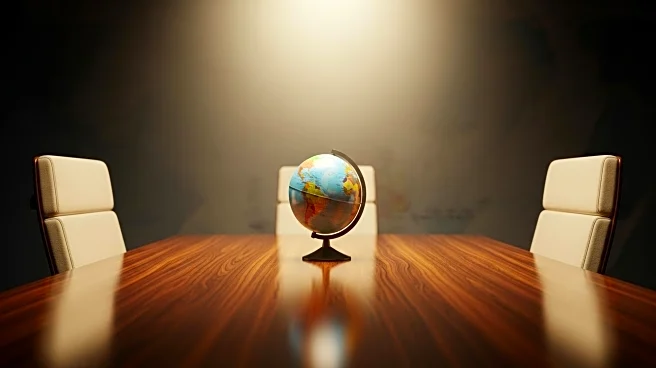What is the story about?
What's Happening?
President Donald Trump hosted Pakistan's Prime Minister, Shehbaz Sharif, at the White House, marking a significant improvement in U.S.-Pakistan relations. This meeting comes as Trump's relationship with Indian Prime Minister Narendra Modi has become strained due to India's increased purchases of discounted Russian oil. The U.S. has responded by imposing tariffs on India, aiming to exert economic pressure on Moscow. Meanwhile, the U.S. and Pakistan have reached a trade agreement to develop Pakistan's oil reserves and reduce tariffs. Sharif's endorsement of Trump for a Nobel Peace Prize and the recent U.S.-led ceasefire between India and Pakistan have further strengthened ties.
Why It's Important?
The warming relations between the U.S. and Pakistan could have significant geopolitical implications, especially in the context of U.S.-India relations. The strained ties with India, a key U.S. ally, could affect regional stability and economic partnerships. The U.S.-Pakistan trade agreement may boost Pakistan's economy and energy sector, potentially altering regional power dynamics. Additionally, the U.S.'s strategic moves to counter Russia's influence through economic measures highlight the complex interplay of international relations and trade policies.
What's Next?
Future developments may include further negotiations between the U.S. and India to resolve trade barriers, as indicated by Trump's recent statements. The evolving U.S.-Pakistan relationship could lead to more collaborative efforts in energy and security. Observers will be watching for India's response to the tariffs and any shifts in its foreign policy, particularly regarding its ties with Russia and China.


















